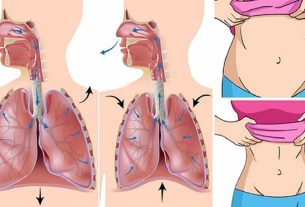Alexithymia is a person’s inability to identify and/or describe feelings, emotions or sensations in their body and recognize their causes, which can cause symptoms of isolation, difficulty socializing and poor language.
Although the specific cause of alexithymia is not known, it is believed that this disorder may originate in childhood due to childhood abuse or be caused by medical illnesses, psychological trauma, and even genetic causes.
Although alexithymia is not recognized as a disorder by the DSM-5, it has been associated with other psychiatric disorders, such as eating disorders, panic and obsessive-compulsive disorder. Therefore, it is important to consult a psychiatrist to confirm the diagnosis and begin appropriate treatment.

Main symptoms
The main symptoms of alexithymia are:
- Difficulty recognizing and describing feelings or emotions;
- Language poor in words, with short “yes” or “no” answers being frequent;
- Difficulty maintaining a conversation;
- Social isolation;
- Difficulty socializing;
- Low ability to recognize feelings;
- Lack of empathy.
Although people with alexithymia have emotional reactions, when receiving good news or being surprised, for example, they are usually not able to identify or describe what they are feeling and often confuse their emotions when trying to explain them.
Despite this, alexithymia can be mild, so that the person can interact with others and the symptoms do not affect their daily routine. In more serious cases, the person may isolate themselves and avoid social contact.
How to know if it is alexithymia
The diagnosis of alexithymia must be made by a psychiatrist, who will evaluate the signs and symptoms presented by the person, in addition to personal health and family history.
If you want to make an appointment, you can find the psychiatrist closest to you using the tool below:
Taking care of your health has never been easier!
The doctor can perform psychological tests, such as the Toronto Alexithymia Scale (TAS-20) and the Alexithymia Questionnaire for Children, for a better assessment and to help confirm that it is alexithymia.
Furthermore, in rarer cases, the doctor may also recommend imaging tests such as MRI to identify possible causes, such as stroke sequelae or brain injuries due to blows, for example. See how MRI is done.
Possible causes
The causes of alexithymia are not fully known, however, it is believed that it may develop in some people due to their genetics, ending up being considered a personality trait.
Alexithymia can also appear as an emotional defense reaction, being more common in the case of negative childhood experiences, such as abuse or lack of parental care, psychological traumas, such as wars, natural disasters or accidents, and frequent stress.
Furthermore, alexithymia has been related to the presence of psychiatric disorders, such as obsessive-compulsive, eating disorders and substance abuse, such as drugs or alcohol, and neurological diseases, such as fibromyalgia, Parkinson’s, Alzheimer’s and multiple sclerosis.
How the treatment is carried out
The treatment of alexithymia must be guided by a psychiatrist, especially in the case of associated psychiatric problems, and it is important to also treat the underlying problem, which, in itself, can improve the symptoms of alexithymia in some cases.
To treat alexithymia, the psychiatrist may recommend psychotherapy, especially psychodynamic interpersonal psychotherapy, verbal expression strategies, relaxation or mindfulness techniques, for example, which will help the person to better identify and express their emotions. See how to practice mindfulness and its benefits.
In cases where alexithymia impairs the person’s quality of life, the psychiatrist may also recommend the use of antidepressant medications, such as venlafaxine or fluoxetine.

Sign up for our newsletter and stay up to date with exclusive news
that can transform your routine!
Warning: Undefined array key "title" in /home/storelat/public_html/wp-content/plugins/link-whisper-premium/templates/frontend/related-posts.php on line 12
Warning: Undefined array key "title_tag" in /home/storelat/public_html/wp-content/plugins/link-whisper-premium/templates/frontend/related-posts.php on line 13



